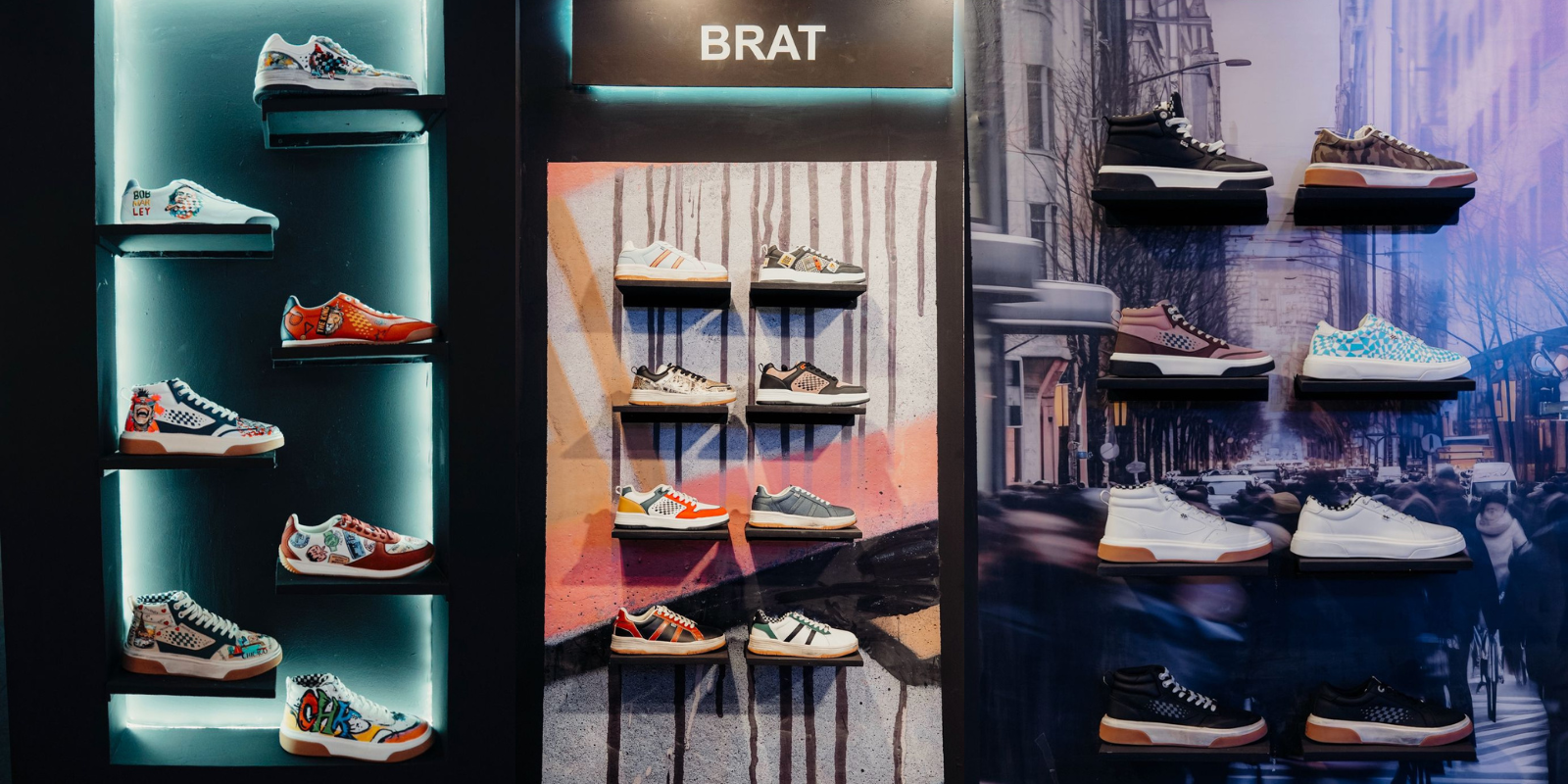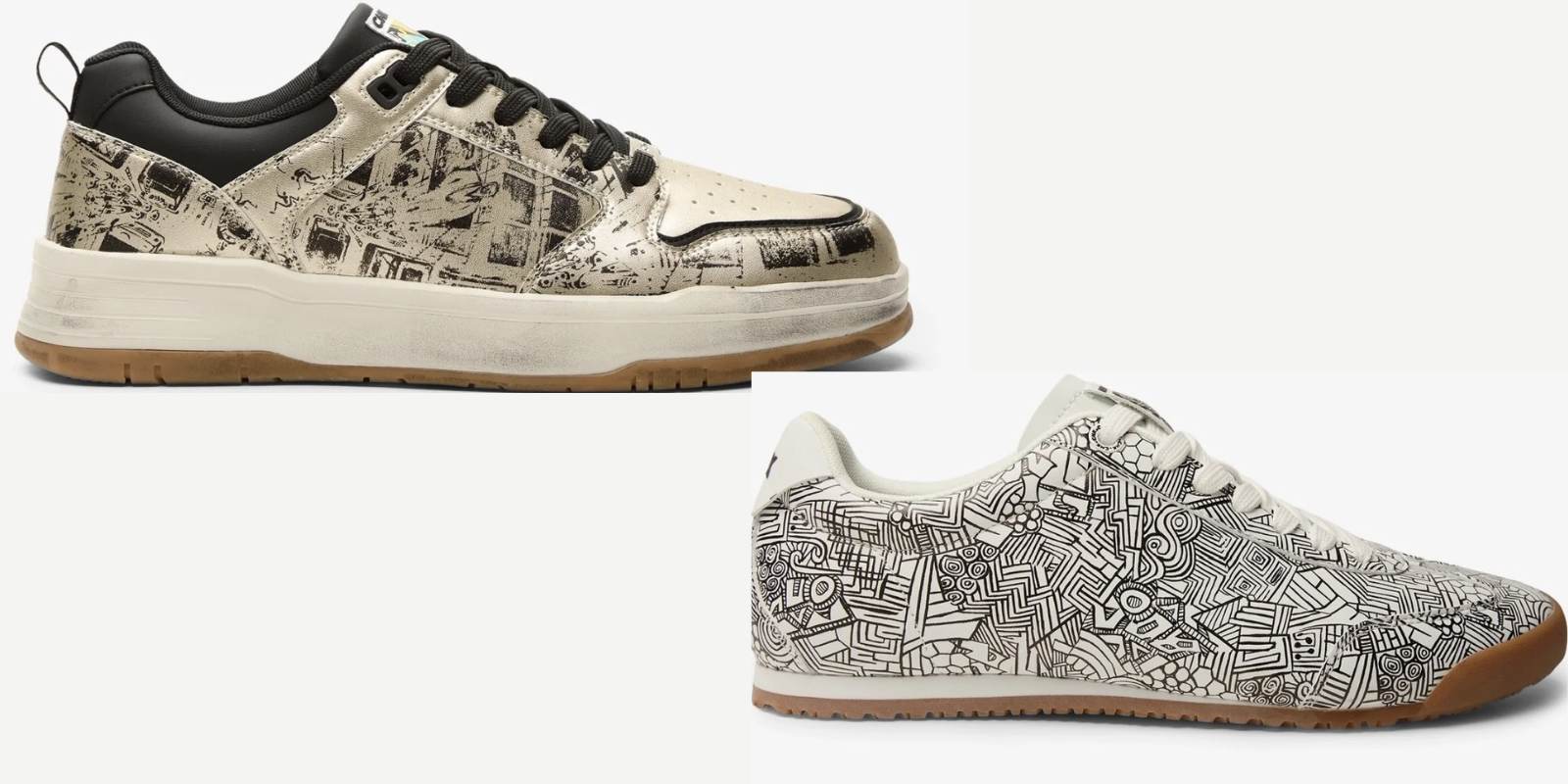
India’s sneaker market is booming but polarised. On one end, global giants like Nike, Adidas, and New Balance dominate the performance segment, often pricing products above ₹10,000. On the other hand, local brands cater to the budget-conscious, with limited designs and basic silhouettes.
Sitting between these extremes is a large white space—lifestyle sneakers that are stylish, high-quality, and also accessibly priced.
CHK—launched by the co-founder of ecommerce platform Myntra and other industry veterans—is stepping into this gap to tap into the opportunities.
Founded by Sankar Bora, Deepan Babu, Bharat Mahajan, and Deepak Patil in November last year, the Bengaluru-based brand offers fashion-centric sneakers priced between ₹4,000 and ₹8,000, designed to be worn for work, travel, and social settings.
From passion to product
The idea for CHK took shape in the middle of 2023 when Sankar Bora, a serial entrepreneur and the co-founder of ecommerce platform Myntra and social ecommerce platform DealShare, noted the rising demand for sneakers as an everyday style staple.
However, Bora also noticed that few brands offered design-led, affordable options. So, he teamed up with Deepak Patil, a veteran in the footwear industry, who in turn roped in renowned sneaker designer Bharat Mahajan.
Patil has around 23 years of experience across ecommerce, retail, and footwear manufacturing. He has played a key role in building the sports footwear business at Cult.fit, and has also led the footwear category at Myntra.
The trio was joined by strategy and finance expert Deepan Babu.
The founders of CHK not only come with deep domain expertise but also share a strong passion for sneakers. They say the brand name stands for ‘check-set-go’—a spin on the popular phrase ‘get-set-go’.
CHK aims to address several gaps in the sneaker market to offer a wide variety of silhouettes for different foot shapes and use cases; maintain affordability without compromising on quality; eliminate minimum order quantity constraints; and launch fresh designs frequently.
Manufacturing power and agility
CHK does not stockpile finished shoes in large quantities. Instead, it keeps components, such as soles and uppers, in the warehouse. As orders come in or trends shift, the team quickly puts together the required styles.
Owning the production process and controlling the entire value—from sourcing to manufacturing—makes this possible. CHK is working towards a system wherein shoes are made only after a customer places an order.
“We are developing just-in-time manufacturing capabilities which will enable us to use the components we have. Our own factory enables us to manufacture as per the demand of customers. We don’t have to follow any minimum order quantity; we can make as few pairs as we want—even just one pair if needed,” elaborates Bora, COO of CHK.
With a production turnaround of just 45 days, the brand is built for variety and speed. “We are able to move swiftly, turn raw materials (sourced from China) into new designs on demand, and ensure consistent product quality through rigorous in-house testing.”
CHK has a 35,000 sq ft factory in Ranipet, Tamil Nadu with a monthly production capacity of 30,000 pairs. It has a design team in Bengaluru, which has already churned out 75 styles, 33 of which were rolled out at the launch of the brand earlier this month.
To keep styles unique and launch new designs more often, the founders of the brand have deliberately decided to release smaller batches of each shoe design.
Product line-up and market strategy
CHK’s debut lineup comprises four collections: City Hopper for daily wear; Brad with funky, pop-culture-driven designs; Legend with sleek, sophisticated looks; and Retro inspired by ‘80s–‘90s sneaker nostalgia.
The brand primarily targets millennials and Gen Z customers, both men and women. The sneakers are currently available in unisex sizes 4 to 11 on CHK’s own ecommerce site. The brand is consciously avoiding ecommerce marketplaces at the moment to retain control over customer experience.
Each collection is built around distinct silhouettes tailored to the lifestyle needs of young customers. “Today’s consumers—especially Gen Z—want sneakers that express their identity, not just performance,” says Babu, CEO of CHK.

Also Read Sneaker startup Comet raises $5M from Elevation capital, Nexus Ventures
Sneaker startup Comet raises $5M from Elevation capital, Nexus Ventures
Commenting on the quality of the shoes, Bora says, “Our shoes are made of high-quality microfiber, PU, textile and rubber. We use high cushion in-soles to provide long lasting comfort to the customer.”
The brand raised Rs 20 crore (~$2.5 million) in January this year from Accel and Bluestone and plans to invest the capital in design, technology, and distribution.
CHK is set to open its first physical retail store in Bengaluru in three months. It also plans to open 40–50 stores in the country in two to three years in cities such as Bengaluru, Mumbai, Gurgaon, Delhi, Pune and Hyderabad.
The brand also plans to let customers personalise their sneakers. Other innovations such as nano coatings and dual insoles are also in the works to enhance customer experience.
Nano coating keeps the shoes dust- and water-repellent, while dual insoles with different levels of cushioning help adjust fit, thus addressing the lack of half sizes in India.

CHK shoes highlighting Indian games and graffiti
“In India, half sizes are not available. For example, UK 8 and UK 9 are available but UK 8.5 is not available,” explains Bora.
The IMARC Group values the sneaker market in India at $3.76 million and expects it to reach $6.46 million by 2033. Players like Comet, Neeman’s, Gully Labs, and Mochi operate in the market.
According to Bora, CHK differentiates itself with a vertically integrated model, diverse silhouettes, and in-house designs tailored for Indian consumers—for instance, the brand has shoes that highlight Indian games and graffiti.
“Most sneaker companies are focused on a particular customer persona. We are trying to address the different personas of the same customer. For example, customers will have different occasions during the day such as office, party, casual outdoor etc. The variety of designs and silhouettes helps address the different lifestyle needs of the customer,” Bora signs off.
Edited by Swetha Kannan
Original Article
(Disclaimer – This post is auto-fetched from publicly available RSS feeds. Original source: Yourstory. All rights belong to the respective publisher.)